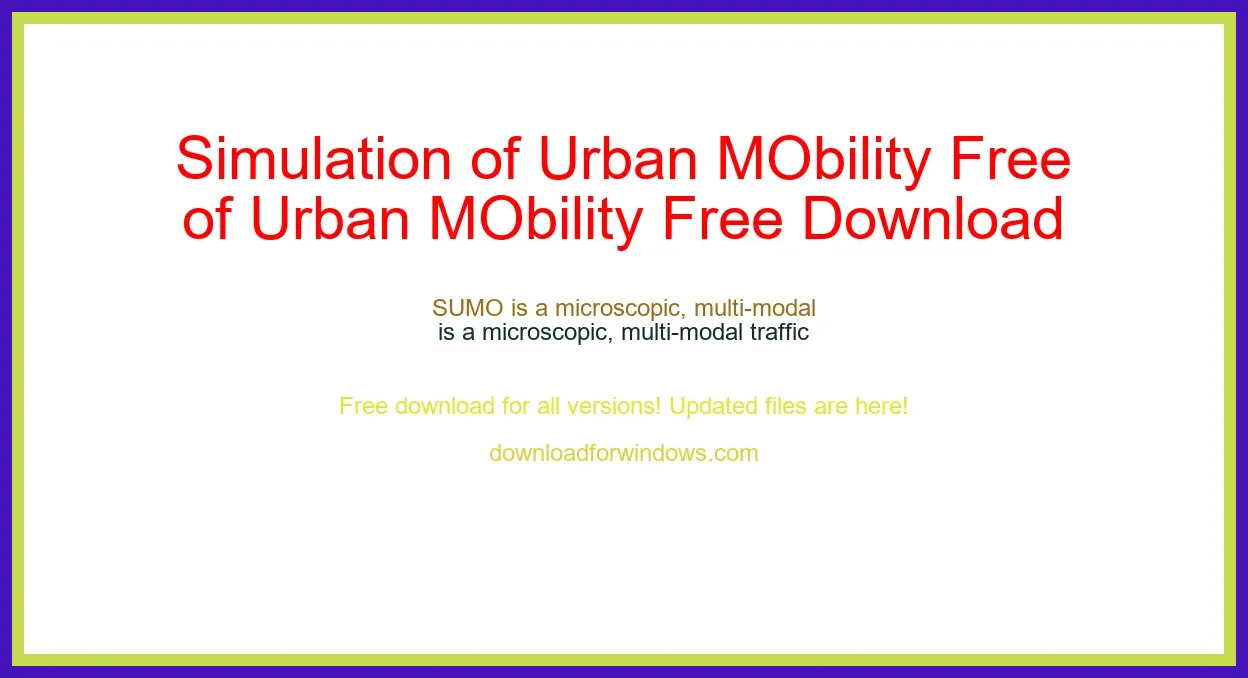Simulation of Urban MObility Free Download for Windows & Mac
SUMO is a microscopic, multi-modal traffic simulation. - Simulation of Urban MObility

Published Date: 2024-04-11
Simulation of Urban MObility Free Download
Are you interested in urban mobility and want to understand the intricacies of traffic flow and pedestrian movement? Look no further than Simulation of Urban MObility (SUMO), a free and open-source microscopic traffic simulation software that allows you to model and analyze various urban transportation scenarios. SUMO provides a comprehensive suite of tools for simulating realistic traffic behavior, enabling researchers, planners, and engineers to gain valuable insights into urban mobility patterns. With SUMO, you can create detailed models of road networks, traffic signals, public transportation systems, and pedestrian behavior, allowing you to explore different traffic management strategies and evaluate their impact on traffic flow and congestion.
SUMO offers advanced features such as real-time traffic simulation, microscopic vehicle and pedestrian movement modeling, and support for various input data formats, including OpenStreetMap and GIS data. Its modular architecture allows for easy integration with other simulation tools and external data sources, providing a flexible platform for complex traffic analysis. SUMO is widely used in academic research, transportation planning, and industry applications, helping to optimize traffic flow, reduce congestion, and improve the overall efficiency of urban mobility systems. It is available for free download for Windows and Mac operating systems, making it accessible to a wide range of users.
Simulation of Urban MObility : SUMO is an open source, highly portable, microscopic and continuous traffic simulation package designed to handle large networks. It allows for intermodal simulation including pedestrians and comes with a large set of tools for scenario creation. The code and the issue tracker can be found at https://github.com/eclipse-sumo/sumo/ The documentation can be found at https://sumo.dlr.de/docs/
_Download_Full_____UPDATE.webp)
_Download_Full_____UPDATE.webp)
_Download_Full_____UPDATE.webp)
_Download_Full_____UPDATE.webp)
_Download_Full_____UPDATE.webp)
_Download_Full_____UPDATE.webp)
_Download_Full_____UPDATE.webp)
_Download_Full_____UPDATE.webp)
_Download_Full_____UPDATE.webp)
_Download_Full_____UPDATE.webp)